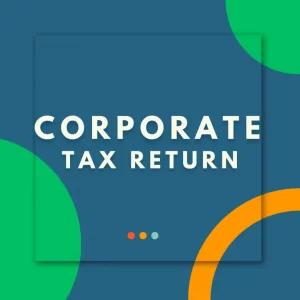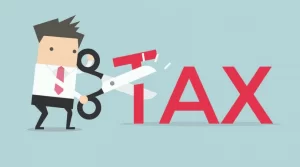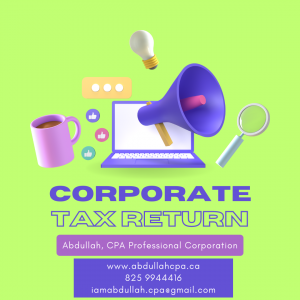We work with business owners from across Canada and we are often asked about the difference between salary vs. dividend Canada. If you own a business through a corporation, you have the ability to pay yourself a salary or dividends or a combination of both.
This article will look at the difference between salary and dividends and discuss the main advantages and disadvantages of each. We will also see some common scenarios for when a business owner may choose one method over the other.
Type of Transaction – Salary / Wages
If you are paying yourself a salary or wage (same thing), the payments become an expense within the corporation. The income earned by you will be considered employment income for which you’ll receive a T4.
The expense in the company reduces the corporation’s taxable income which reduces corporate taxes owing.
How to Pay Yourself a Salary
To pay yourself a wage, the corporation will need to register a payroll account with CRA. Each time you are paid, the corporation will need to withhold source deductions (CPP and Income Tax) from your pay.
These source deductions are then remitted to the Receiver General (CRA) on a regular basis. In addition, each year the corporation must prepare and file T4s for any employees that earned wages.
Why Choose Salary / Wages
Paying yourself a salary can be a way for you to earn a steady and predictable personal income. Let’s look at some key advantages when paying yourself a salary.
Wages Create RRSP Contribution Room
Paying yourself a wage will allow you to build RRSP contribution room, whereas paying yourself via dividends does not. This is an important consideration if you are wanting to continue investing through your RRSP.
If you pay yourself solely through dividends, you won’t continue to build contribution room and you may not be able to continue investing in your RRSP.
Salary Vs. Dividend canada
Wages Allow for CPP Contributions
This is a double edged sword. Wages will allow you to contribute to the Canada Pension Plan (dividends do not).
Salary Vs. Dividend canada
This means you will benefit in the future when you collect CPP, but it also means that the CPP contributions are a cost for you and for the corporation.
It boils down to less cash now because of CPP deductions and CPP expense in the company, but more cash later when you collect CPP when you are older.
Wages Create Fewer Surprise Tax Bills
When paying yourself a salary, income tax is withheld from each payment and remitted to the Receiver General. This means that when you file your personal tax return you will have already paid income tax on your income.
This helps you to avoid surprise personal tax bills once you file your return. When paying dividends, income tax isn’t withheld and remitted at each payment. This often creates personal taxes owing in April when you go to file your return.
The surprise tax bill is a common scenario that we see, especially with those who are new to paying themselves through dividends.
If you find it difficult to save money and would hate to see a $10,000+ personal tax bill in April, then wages could be the way to go.
Wages Are Good When Applying for a Mortgage
When you are attempting to qualify for a mortgage, banks like to see steady, predictable income.
Earning employment income like this will help show that steady income, whereas dividend income may not be looked at as favorably.
This consideration is often overlooked by accountants because they can be so concerned with minimizing tax. If you are considering buying a home in the next two years, then it may be good to also consider paying yourself a salary.
Dividends
Type of Transaction – Dividends
Dividends are payments to shareholders of a corporation that are paid from the after tax earnings of the company.
This means that dividends are not a corporate expense and do not reduce the corporate taxes paid.
The flip side is that dividends carry less personal tax liability than wages because they come with a dividend tax credit (more on tax differences below). The additional corporate tax and reduced personal tax are meant to offset one another.
How to Pay Yourself Dividends
In practice, paying dividends to shareholders of a corporation is fairly easy. Dividends are declared and cash is transferred from the corporate account to a shareholder’s personal account in one or many transactions.
In practice, you’ll often see corporate shareholders just take money out of the corporate account as needed and then a dividend is declared for the total amount once per year.
Then each year the corporation must prepare and file T5s for any shareholders who received dividends.
The tricky thing with dividends is that they are issued and paid based on share ownership.
For example, if Pied Piper Ltd. wants to issue $100,000 in dividends to the owners of its Class A common shares, it must do so based on percentage of ownership.
So, if Dinesh owns 30% of Pied Piper’s class A shares and Richard owns the other 70%, then Dinesh would receive $30,000 and Richard would receive $70,000.
This can make it difficult to allocate different amounts of income to multiple shareholders if they all own the same class of shares.
Salary Vs. Dividend canada
Why Choose Dividends
Paying dividends can be a simple way for business owners to withdraw money from their corporation. Let’s look at these advantages next.
Dividends May Reduce Cost Compared to Wages
Paying dividends removes the need to contribute to CPP, which reduces corporate and personal costs. As of 2022, CPP costs employers 5.7% on the first $64,900 of wages per employee. It also costs employees 5.7% on their first $64,900 of earnings.
This means if a business owner pays himself $65,000 on wages, the total CPP cost is just under $7,000!
Here’s the calculation just for “fun”

The downside to this story is that dividends do not allow you to contribute to the Canada Pension Plan which will reduce the amount of Canada Pension you can collect in your old age.
More cash now, less cash later.
Dividends are Simple Compared to Wages
If you own 100% of your corporation, you can just declare a dividend and transfer cash from the company to your personal account. Or, what’s more common in practice is just take cash as you need it and then declare a dividend for the total amount once per year.
There’s no need to register for payroll and remit source deductions. You will still have to file a T5 once per year, but it really isn’t that difficult.
Dividends Mean Less Less Chance of Late Filing Penalties
With dividends, you won’t need to make consistent payroll remittances like you do with wages.
Payroll remittances are relentless. Usually they have to be paid each month and late payments come with stiff penalties.
Paying dividends eliminates the chance of late or missed payroll remittances. That being said, filing of T5s must be completed on-time once per year when paying dividends.
For those who know they will struggle to make payroll remittances on-time, dividends may be the right choice.
Dividends Create Less Employer Health Tax Cost
In a few Canadian Provinces (BC, MB and ON), some businesses must pay employer health tax. This tax is calculated based on wages paid to employees.
Typically the tax only applies to wages and not dividends, so businesses can avoid or reduce the amount of employer health tax paid by paying owners in dividends instead of wages.
Salary Vs. Dividend canada
Reach out to AbdullaCPA for consultation.






